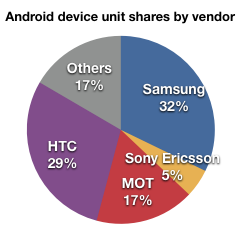The UPhone will run on a “totally new” operating system that Unicom developed based on Linux, Zhang Zhijiang, who heads the company’s technology department, said in an interview today at the Mobile Asia Congress in Hong Kong. The phone is being developed with Okwap, Huawei Technologies Co. and ZTE Corp., he said.
via China Unicom Says It Will Introduce Self-Developed Smartphone by Year-End – Bloomberg.
Operators are still considering bespoke operating systems.
See also: European Operators contemplate own OS. Why not just fork Android?

